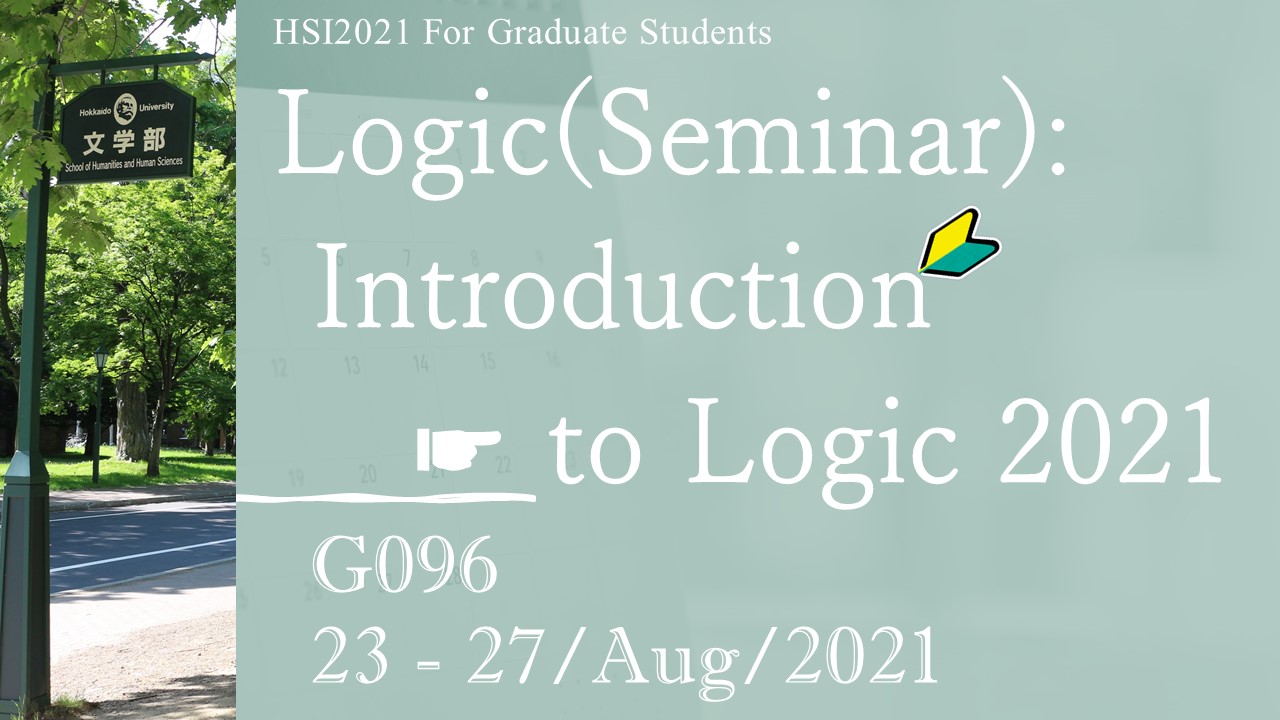
Logic is a basic tool for evaluating various kinds of reasoning. A given reasoning may be evaluated in terms of truth of a sentence or correctness of the use of logical vocabulary. From these two perspectives, this course provides basics of propositional, first-order and modal logics.
Lecturer
- Associate Professor Katsuhiko SANO
Faculty of Humanities and Human Sciences, Hokkaido University
Course Detail
Schedule: 2021 August 23rd – 27th
Level: Graduate
Credit: 2
Course Format: Online – Live
Outline
This course aims to provide basics of propositional logic, first-order logic and modal logic from both semantic and proof-theoretic perspectives. In particular, the course will cover the following topics for each of the three logics:
1. What is a general framework of logic? What are syntax, semantics and proof theory?
2. How can we translate or formalize a given natural language sentence into a formula in a logic?
3. How can we establish a validity of a given reasoning or argument?
4. How can we falsify (or provide a counterexample against) a given reasoning or argument?
5. What is a relationship between semantic and proof-theoretic approaches, i.e., an approach based on the notion of truth and an approach based on the behavior of logical connectives?
Course Goals
- Understand a general framework of logic.
- Formalize a fragment of English sentences into a formula of a logic.
- Check if a given reasoning holds in term of both tableau calculus and natural deduction calculus.
- Provide a counterexample when a given reasoning does not hold, with the help of tableau calculus.
- Understand the relationship between semantic and proof-theoretic approaches.


